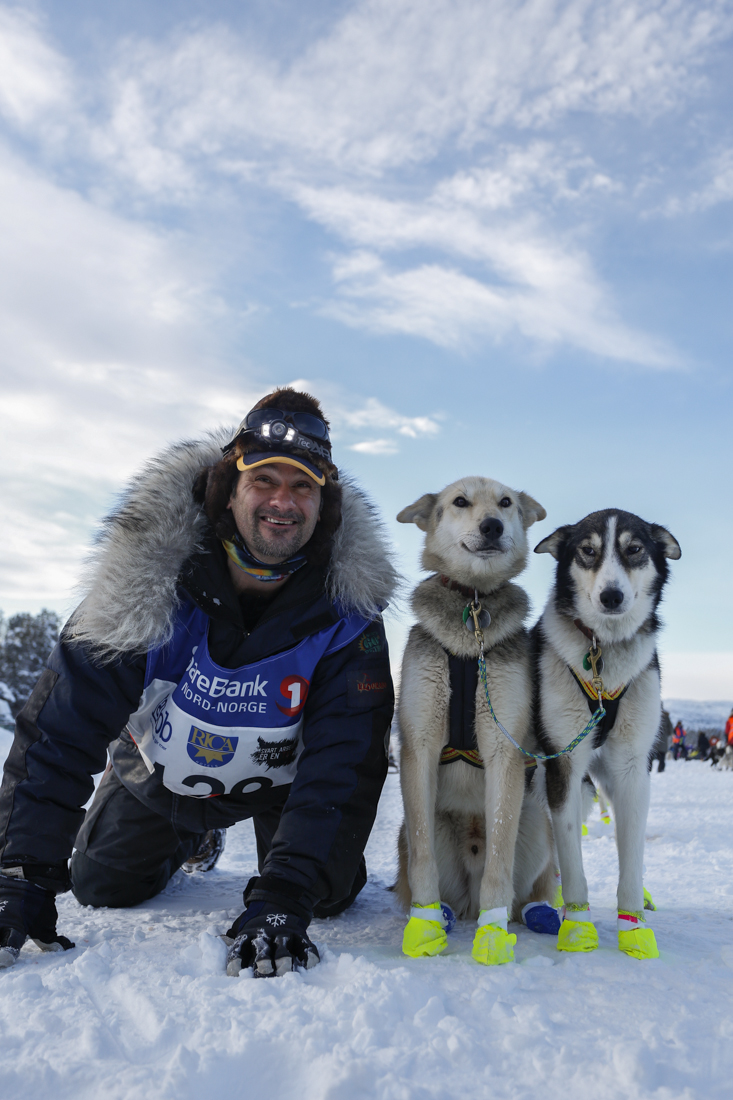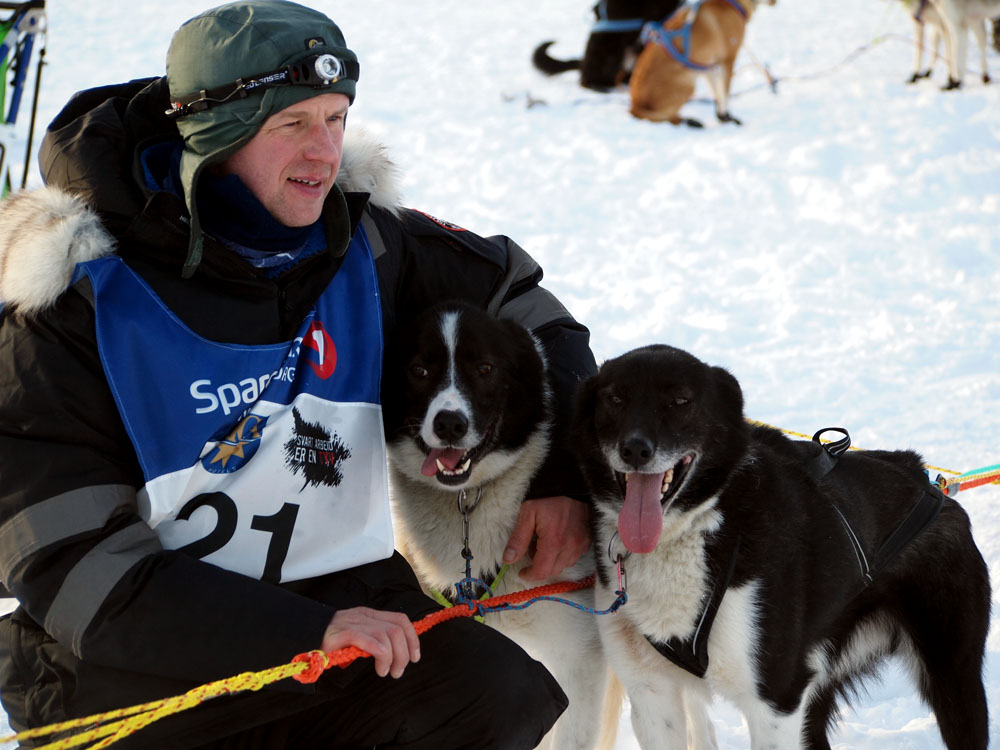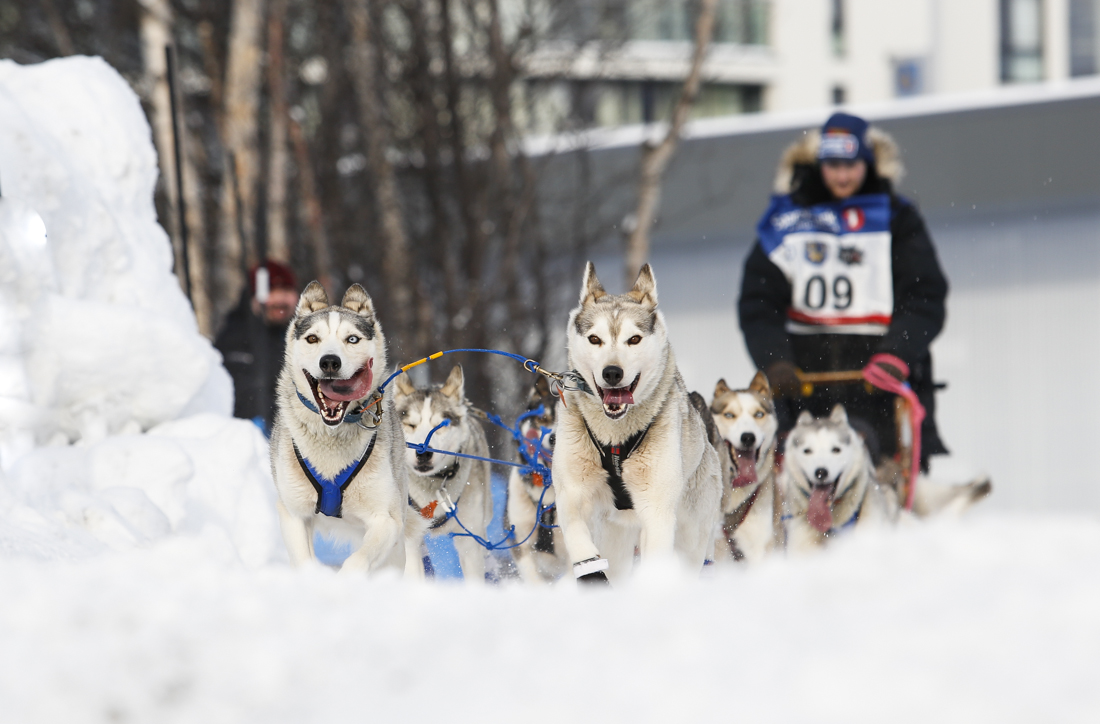
Skrevet av: Karoline Leistad-Jonas / Transl. Liliana Monteiro
Dato: 10.03.2013 08:40
During the FL-2013 there are words that shown up that are in truth, not known to all. Here is a small list of words and its meanings:
Handler: The person (s) who helps during the race, known often as staff. One of their main tasks is to take care of deployed dogs at the many checkpoints that are to be found. They need to guide them to their responsible team, but in the meanwhile they need to ensure their welfare and comfort.
Rookie: First Drives
Veteran: Has raced once or more times before. He must have completed the race in order to be considered a veteran.

Kjell Brennodden and the magical Mira. Archived photo: Glenn Gjøran Skum.
Parking: It’s when the mushing stops to check the condition of the dogs. Sometimes the dogs refuse to go ahead and continue to race, and here they work to motivate the dogs to embark on the journey ahead. A parking is not necessarily a place where the dogs are physically tired, but when the mental condition becomes of concern. A parking can vary in time. Along the course, the main focus of the musher is the dogs' welfare. At parking, the musher must wait until the dogs are ready to go again.
Scooter Matte: It’s when the back rear brake of the sled can stand on to decelerate the dogs. It works as a part of a snowmobile belt.
Snacks / snacking: Small, often frozen meat / fat-bit given to the dogs so that they get the energy along the route.
Checkpoint: The obligatory stations where all mushers are to attend during the race. Here they can rest, feed and water the dogs, groom and eventually put out the dogs - which for various reasons cannot continue to race. The mushers will be clocked in and out of the checkpoint.

Hugh Neff practics his own ways to communicate with his dogs. Photo: Therese N. Andersen
Mandatory rest: The specific number of hours that a mushing has granted in order to rest. In FL-500 it is required at least 20 hours of rest, but they have a mandatory rest period of 6 hours at the checkpoint in Jergul. FL-1000 has two mandatory rest periods, a 16 hour - often taken out at checkpoints Tana, Neiden or Kirkenes. And afterwards, there is a mandatory rest for 8 hours that must be taken in account at the checkpoint in Karasjok.
Dog Socks: Socks are designed to protect their paws from being wound along the race. Mushers use it occasionally during whole course.

Bernd Hemilch having it cosy with his dogs before the restart at Sorrisniva on Saturday. Photo:Niels Westphal
Rugs: There are several types of rugs, both to protect the body of the dog, especially the genitalia of the males, and the stomach for those who may have short fur. The tires are often specially made for dogs and can be used both at rest and while the dogs are pulling the sled. Paw Cream: A cream is used to prevent or treat sore paws.
Snøanker: Anchor which is designed to operate in the snow to hold the dog sled at rest. It can be found permanently on the sled.
Leader Dogs: Those dogs which can be found in the front of the sled and lead the team from checkpoint to checkpoint. They control and can lead the other untracked dogs in the right way.
Race Line: The rope that connects the dogs and sled.

Trond Hansen have it good while driving away from Alta. Photo: Therese N. Andersen